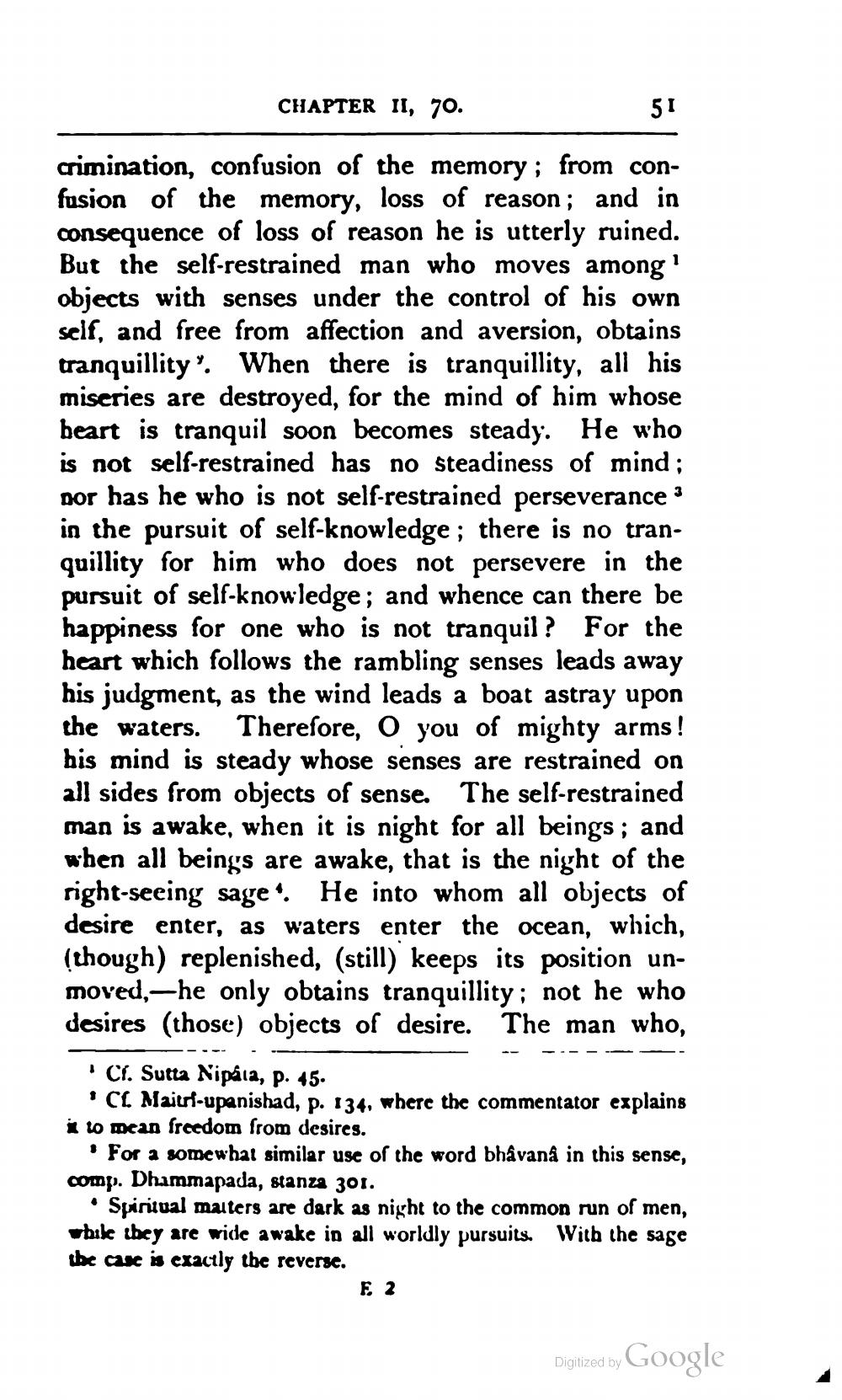________________
CHAPTER II, 70.
SI
crimination, confusion of the memory; from confusion of the memory, loss of reason; and in consequence of loss of reason he is utterly ruined. But the self-restrained man who moves among' objects with senses under the control of his own self, and free from affection and aversion, obtains tranquillity. When there is tranquillity, all his miseries are destroyed, for the mind of him whose heart is tranquil soon becomes steady. He who is not self-restrained has no steadiness of mind; oor has he who is not self-restrained perseverance 3 in the pursuit of self-knowledge; there is no tranquillity for him who does not persevere in the pursuit of self-knowledge; and whence can there be happiness for one who is not tranquil ? For the heart which follows the rambling senses leads away his judgment, as the wind leads a boat astray upon the waters. Therefore, O you of mighty arms! his mind is steady whose senses are restrained on all sides from objects of sense. The self-restrained man is awake, when it is night for all beings; and when all beings are awake, that is the night of the right-seeing sage. He into whom all objects of desire enter, as waters enter the ocean, which, (though) replenished, (still) keeps its position unmoved, -he only obtains tranquillity; not he who desires (those) objects of desire. The man who,
· Cr. Sutta Nipala, p. 45.
"CL Maicri-upanishad, p. 134, where the commentator explains into mean freedom from desires.
For a somewhat similar use of the word bhavana in this sense, comp. Dhammapada, stanza 301.
Spiritual matters are dark as night to the common run of men, while ebey are wide awake in all worldly pursuits. With the sage the case is exactly the reverse.
E 2
Digitized by Google




